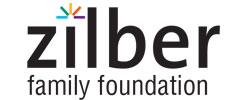

Common Questions
The Community Connections Small Grants Program is a program of the Greater Milwaukee Foundation, Northwestern Mutual Foundation and the Zilber Family Foundation created to support resident-led efforts to improve the quality of life in neighborhoods. The program awards grants of up to $600.00 to fund neighborhood projects, events and activities. All grant applications will be reviewed and scored by a group of residents. The review team will make recommendations about which grants to fund.
- How often can my group apply for small grant funds?
- What if a different resident-led group applies for a Community Connections grant for a project that was already awarded a small grant?
- What is the maximum award amount?
- Can grant funds be used to pay for project expenses that were already paid for?
- What should we include in the budget?
- Should we include the cost of professional services in the budget?
- Can we hire a resident or residents for the project?
- Can we buy equipment that will last for a while after our project is complete with grant funds?
- What is matching support?
- How are volunteer or in-kind matches calculated?
- What are some project ideas?
- Are there any projects that do not qualify for the Community Connections small grants fund?
- How can I get more information about the program?
How often can my group apply for small grant funds?
A group may apply for one grant per year.
What if a different resident-led group applies for a Community Connections grant for a project that was already awarded a small grant?
If a different group of residents is continuing to work on a project or program in a neighborhood that has already received grant funds, they can still apply for funding.
What is the maximum award amount?
The maximum award per project is $600.00. Funds can be used over a period of 6 months.
Can grant funds be used to pay for project expenses that were already paid for?
No. Small grant funding can only be used on expenses that have not yet been paid for.
What should we include in the budget?
Anything that costs money to make your project successful should be included in the budget.
Should we include the cost of professional services in the budget?
• Are you are hiring a professional, such as an artist, musician, landscape designer, licensed caterer, trained teacher, etc., whose skills are necessary for you to complete your project successfully?
• Are the services of this professional not available in your neighborhood through volunteer help?
If you answer yes to both questions above, then please include this in your budget.
Can we hire a resident or residents for the project?
• The leadership group of residents (three or more people) will decide who gets hired/paid.
• Your leadership group will advertise the job to two or more residents who are not part of the group.
• Those interested in the job will tell you in writing why they are qualified and how much they will charge.
• The leadership group will review the applications and choose the one who will best meet the project's needs.
• The leadership group will get an invoice or bill from the person getting paid, will review that invoice, and will make sure the work has been done properly before paying the person.
If all of these requirements are met, you can include this in your budget.
Can we buy equipment that will last for a while after our project is complete with grant funds?
Equipment purchase like cameras, lawnmowers and shovels are not allowable expenses.
What is matching support?
Matching support includes other resources needed for the project. Matching support can be money, volunteer work or donated goods or services such as land, event space, tools or equipment, etc. It might come from foundations, nonprofit partners, businesses, the City, individuals, etc. To be eligible for a Community Connections grant, groups need to get matching donations valued at a minimum of 50% of the total amount requested. For example, if you request $600.00, you should demonstrate a $300.00 match in financial and/or in-kind donations.
How are volunteer or in-kind matches calculated?
For the Community Connections grant fund, the value of volunteer work is $15 per hour per person. For example, if a two people volunteer their time for six hours to build garden beds, this is how to calculate the value of their time:
2 persons x 6 hours = 12 hours
12 hours x $15 per hour = $180
In-kind donations should be calculated at their fair market value, or in other words, the price that an item or service would cost if you had to buy it. For example, if you receive donated garden tools and soil, the value would be the price you would have paid to buy them at the store.
What are some project ideas?
Residents have many wonderful, creative ideas for neighborhood projects. Here are just a few:
• After-school programs/projects
• Beautification projects
• Community safety projects
• Health and wellness programs
• Literacy or adult education
• Murals or public art projects
• Neighborhood festivals or events
• Urban gardens
• Youth-led projects
Are there any projects that do not qualify for the Community Connections small grants fund?
Yes. Grants cannot be used to support the following types of projects or programs:
• Home improvement/repair projects
• Capital campaigns
• Endowment funds
• For-profit entities
• Fundraising events
• Government agencies
• Individuals
• Lobbying efforts
• Political groups
• Religious organizations for religious purposes
How can I get more information about the program?
If you have questions about the small grants program, please call 262-404-7048 or email info@ccsmallgrants.org.



